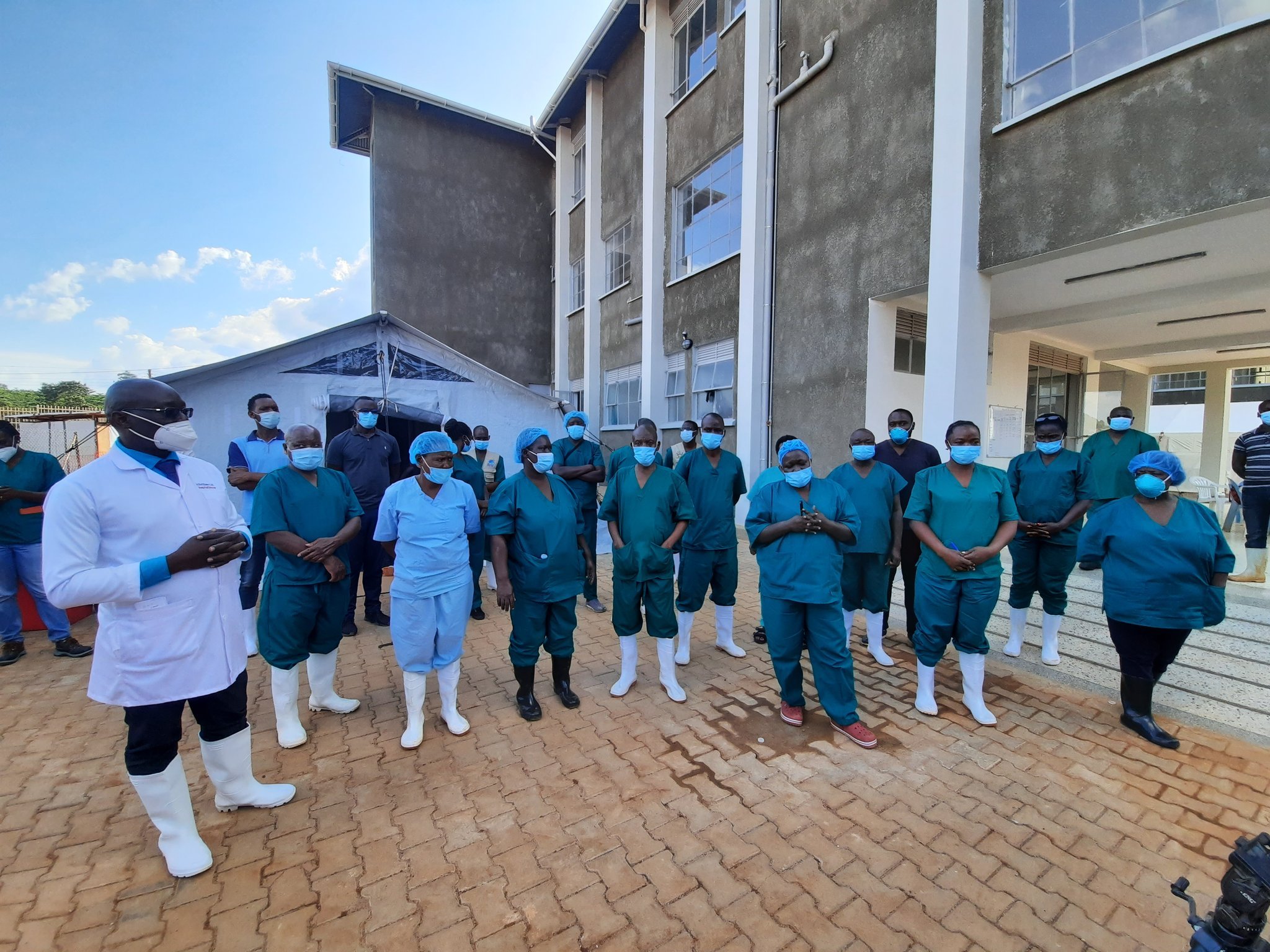Prime
How seven health workers contracted Ebola

Members of the Ugandan Medical staff of the Ebola Treatment Unit stand inside the ward in Personal Protective Equipment (PPE) at Mubende Regional Referral Hospital in Uganda on September 24, 2022. PHOTO | AFP
The recent deaths of four health workers due to Ebola have raised questions about the ability of the government and management of facilities to protect essential workers.
However, Health ministry officials have blamed the infections among the health workers on low vigilance while other medical superiors say workers were not provided with appropriate personal protective equipment (PPE).
At least seven health workers have contracted Ebola during the outbreak which was declared last week with around 65 health workers as contacts of the victims, according to separate reports from the Health ministry and the Ebola taskforce on the ground.
Dr Henry Mwebesa, the Director General of Health Services at the Health ministry, said the first six health workers to test positive for Ebola contracted it from a patient.
“They operated on a patient who was vomiting and bleeding. This was before we confirmed Ebola,” he said. The operation was done at Mubende hospital, according to information from government.
Although some of the symptoms of Ebola can be distinct from those of other diseases, by then, the machine for diagnosing the disease was only at Uganda Virus Research Institute in Entebbe, some 170 kilometres away from Mubende. The turnaround time for the results was also around one day but the government has sent the mobile laboratory to Mubende Hospital to diagnose.
Dr Issa Makumbi, the deputy Director of Uganda National Institute of Public Health (UNIPH) of the Health ministry and Director of the Public Health Emergency Operations Centre (PHEOC), said: “One of the problems is that the signs of Ebola are not very specific. You could think someone has malaria or diarrhoea.”
Dr Asaph Owamukama, the head of senior house officers (SHOs), said health workers contracted the infection because they lacked appropriate PPEs.
“During a normal operation, there is some degree of PPE that is used like usual masks and gloves. But that is not the level that is required for handling Ebola cases. It is possible that it was hard to know whether the patient had Ebola or not and also the index of suspicion was low unlike it is at the moment,” he said.
An SHO is a doctor who is studying to become a specialist. Three of them tested positive following the operation, according to the Uganda Medical Association (UMA).
Dr Samuel Oledo, the UMA president, asked the government to supply sufficient PPEs to all hospitals.
“You should be covered from head to toe. You must have a mask, face shield, goggles, apron, and gumboots and you must have gloves – both surgical and disposal. Ebola is not a joke,” he said.
The shortage of PPEs was one of the major issues during Covid-19.
Dr Mwebesa also tasked health workers to learn basic skills of infection prevention and control.
Some of the deceased medical officials include, Dr Mohammed Ali, 37, a Tanzanian doctor, who died of Ebola Virus Disease (EVD) in Uganda last week. Dr Ali was a Senior House Officer (SHO), a doctor who was studying at Kampala International University to become a specialist (surgeon).
Another nurse who handled an Ebola patient also died before the outbreak was announced, according to Dr Jane Ruth Aceng, the Health minister.
The latest death is Margaret Nabisubi, an anesthetic officer, who died Wednesday morning, according to the Health Ministry.
"The 58-year-old succumbed to Ebola at 4.33am this morning at Fort Portal Hospital (JMedic) after battling the disease for 17 days," Dr Aceng said in a tweet.
She added: "The late Margaret is the 4th health worker we have lost in the current Ebola outbreak after the probable case of the midwife, Dr. Mohammed Ali and the health assistant in Kagadi District. May their souls rest in eternal peace."
Dr Owamukama, while commenting on Dr Ali’s death, said his love for saving lives could have affected his vigilance.
“He was one of those students who was selfless. That is why he had jumped in to help the patient,” he said.




